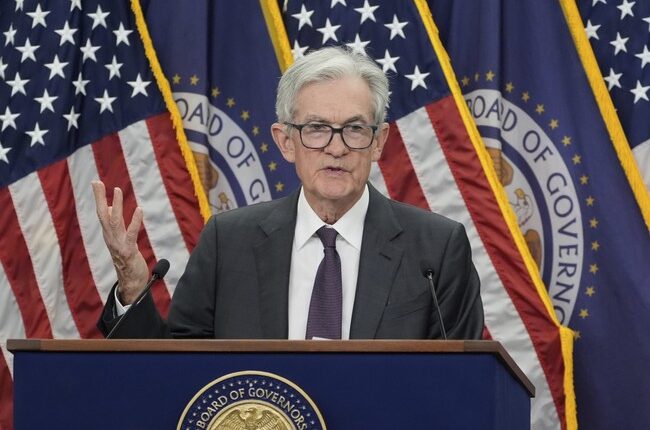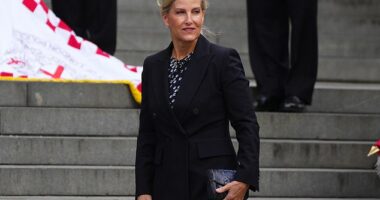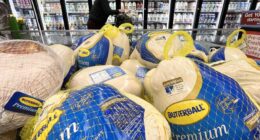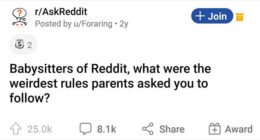
Back in August Federal Reserve Board governor Adriana D. Kugler suddenly stepped down before her term ended, allowing President Trump to add someone of his choosing (Stephan Miran). It happened kind of quietly, and no reason was given for her leaving–until now.
Things have not been great on the image front at the Fed, including for another governor, Lisa Cook, who was recently embroiled in a controversy over alleged real estate fraud, although the U.S. Supreme Court has since released an order that allows her to stay on until oral arguments begin in January 2026.
Then in January of this year, a former adviser to the banking board got indicted on charges of espionage, as my colleague Susie Moore wrote:
Sixty-three-year-old John Harold Rogers of Virginia was arrested Friday and charged with conspiracy to commit economic espionage and with making false statements. Rogers allegedly conspired to steal FRB trade secrets in order to aid China.
READ MORE: SCOTUS Says Lisa Cook Stays Put at the Fed – for Now
NEW: Former Federal Reserve Adviser Indicted on Espionage Charges
Now, a disclosure in a newly-released government report reveals the swift exit by Kugler came after she broke stock-trading rules enforced by the bank–more than once:
Adriana D. Kugler, who abruptly stepped down from her role as a governor at the Federal Reserve in August, repeatedly violated the central bank’s trading rules, according to a report from the U.S. Office of Government Ethics released on Saturday.
The new disclosures showed multiple purchases and sales of shares in individual stocks including Apple, Southwest Airlines and Cava, a restaurant group — many of which took place during the so-called blackout period ahead of policy meetings in which officials are not allowed to make such trades.
Ms. Kugler specified in the disclosure forms that the transactions were carried out by her husband without her knowledge and that “her spouse did not intend to violate any rules or policies.” Ms. Kugler is married to Ignacio Donoso, an immigration attorney.
The rules became more strict on stock trades in 2022 after two regional reserve bank presidents were caught making active trades just at the beginning of the COVID pandemic. Another Fed bank president, Raphael W. Bostic, who heads the Federal Reserve Bank of Atlanta, was forced to correct his disclosure forms after an internal investigation found he also broke the trading rules. He said on Wednesday that he will retire in Feb. 2026.
The new report on Kugler’s actions, as mentioned above, show she violated the rules in 2024, as well:
Some of the improper trades were flagged to the Fed’s internal watchdog in early 2025. That came after meetings that Ms. Kugler had with compliance officers at the central bank in the fall of 2024 about the institution’s trading rules and the process to disclose transactions, according to a Fed official.
This is not the first time Ms. Kugler violated the Fed’s trading rules. She said in a financial disclosure form in February 2024 that four trades in individual stocks “were carried out by my spouse, without my knowledge, and I affirm that my spouse did not intend to violate any rules.”
The new disclosures detail a number of transactions involving the same company that occurred within weeks of one another. Ms. Kugler reported the purchase of shares in Cava just a week before the policy meeting on March 19-20 and selling on April 5. Cava stock was bought and sold twice more by May 15.
Southwest Airlines stock was purchased on March 22 and then sold the day before the two-day meeting that began on April 30. Between $100,000 and $250,000 in shares of Apple were purchased in April as well.
…
Days before the July 29-30 policy meeting, Ms. Kugler asked Mr. Powell to grant her a waiver so that she could trade during the blackout period in order to get rid of impermissible holdings, the official said. That request was denied.
Here are more details on the Fed rules:
The rules, which apply to other senior members of the Fed as well as policymakers’ spouses and children, bar trades in individual companies and limit purchases to mutual funds and other diversified investments. They also banned trading in cryptocurrencies, foreign exchange and commodities. Transactions during the roughly two-week period before policymakers gather to vote on interest rates had long been prohibited.
This is a developing story. RedState will provide updates as more information becomes available.
Editor’s Note: Do you enjoy RedState’s conservative reporting that takes on the radical left and woke media? Support our work so that we can continue to bring you the truth.
Join RedState VIP and use the promo code FIGHT to get 60% off your VIP membership!







